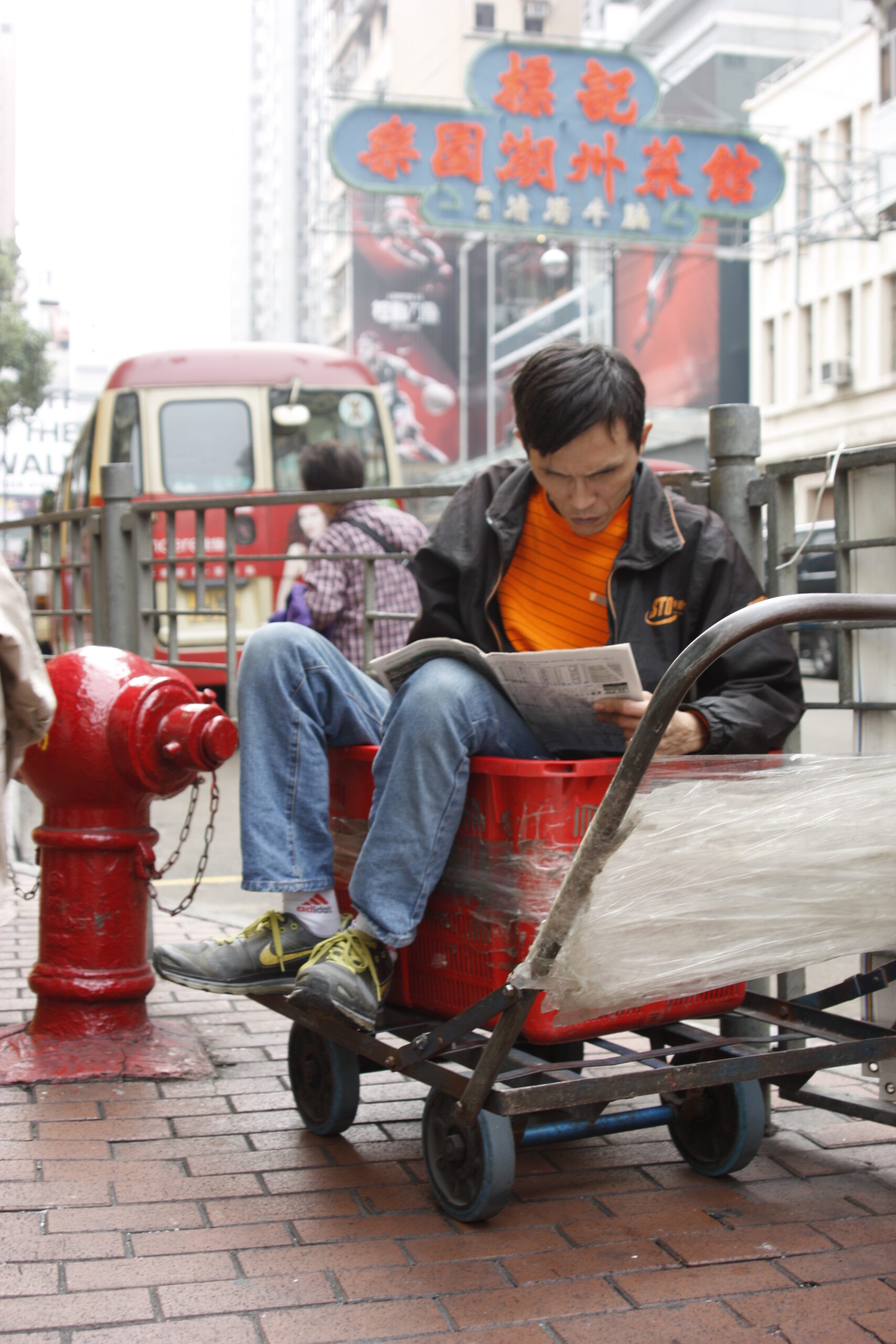“The theory sounds exciting to more and more professionals, and the practice is in the process of implementation. Are companies currently managing more workation or bleisure? What is working, what is not yet working? An interim status.“ Sylvie Konzack
Fewer business trips, but longer, more climate-friendly, more cost-effective, and apparently also more appreciative business trips – the business travel world is in turmoil because, above all, the working world is also in turmoil. Because after the pandemic and in the midst of the new crises, everything stays different. It is about new needs of different generations of workers facing a widespread shortage of employees in many places. It is about the promise of New Work with growing digitalised opportunities that invite working from anywhere. And it is about the impact of other mega-trends such as urbanisation, globalisation, mobility, neo-ecology, individualisation and health, as described by the Zukunftsinstitut.
New Work thus encompasses more than new office worlds and mobile working for a better work-life balance, and it also concerns more than “just“ the needs of the younger generations. Rather, it is also about modernising employee models by creating more meaning, motivation or even self-determination. And about workation and bleisure as an already visible part of it.
The trend in increasing numbers
Bleisure means the private extension of a business trip, usually by two or three days, at the place of the business trip or in the vicinity, before or after the face to face appointment and alone or with friends or family. Workation, as a special form of remote work, combines working in distant places with leisure aspects and can be undertaken individually or in a team. Both “blended travel“ forms are about more flexibility and individuality in the job, breaking routines, better motivation and work-life balance for the self-employed as well as employees, and from the company‘s point of view, easier recruitment and better retention of employees.
Whether as themes or lived in reality – after the pandemic, bleisure and workation have arrived in everyday business travel. According to the latest business travel analysis by the German Travel Management Association (VDR), a business trip by German companies and public institutions now takes an average of 2.3 days, compared to 1.6 days in 2019. The reason is that appointments are increasingly being combined. At the same time, according to the VDR, the trend towards longer trips with fewer business trips overall shows an increasing interest in bleisure and workation trips.
The corporate payment specialist Airplus has also calculated that last year 16.3% of air tickets were issued for a Saturday or Sunday – in 2019 the proportion was still 12.4%. Already in 2020, according to Airplus, 90 % of Millenials would have made Bleisure trips, while in the Baby Boomer generation it was not much less at 80 %. According to a survey, the Accor hotel group comes to a total of two-thirds of the business travellers surveyed who have already extended their stays in 2022.
90% of Millenials have already taken Bleisure trips in 2020, according to Airplus, compared to 80% of Baby Boomers.
The trend is also reflected on the employer side: the international Global Business Travel Association recently recorded that 41 % of travel managers have noticed an increase in the desire for mixed or bleisure travel among their employees. Again, Airplus, in the course of a recent survey of some 110 top German managers, concludes that 46% of them expect a significant increase in bleisure and workation trips. “Despite some challenges, the bleisure trend seems to become the norm,“ says the corporate payment provider. And Accor Hotels, in the context of its current Masters of Travel report, speaks of a trend that will soon reach beyond the younger target groups to the broader public.
„Whether as themes or lived out in real life – Bleisure and Workation have arrived in everyday business travel after the pandemic.“
Looking at the survey of the language learning platform Babbel, this already seems to be the case: 76 % of Germans would take advantage of a workation if they had the opportunity. They are most motivated by the prospect of a good work-life balance (68 %) and better weather (54%), (see charton page 18). Accordingly, southern Accordingly, southern Europe and classic holiday destinations regularly top numerous workation rankings. But the desire to visit friends and family who live at the Workation or Bleisure location is also mentioned. Especially for companies with many international employees, the topic is thus developing into a highly relevant retention tool.
Manche Unternehmen suchen die Öffentlichkeit
The growing number of studies and especially media publications show an apparently significant trend towards bleisure and workation. Bleisure is not new. Private extended travel with private expense coverage has always been used, say quite a few business travellers as well as companies. Workation options, on the other hand, are offered to their employees by 8% of companies in Germany, according to a survey of HR managers by the Ifo Institute and Randstad. Raoul Dery, who advises companies with newworkation.com on remote work and workation locations, notes that small companies as well as corporations are demanding workation, especially in the IT, financial services and consulting sectors. More and more are making this public.
The bank ING Germany, for example, has been offering mobile working abroad since the beginning of 2022 and reported to the media that a year later it had received around 700 workation requests from its employees, almost all of which were approved. The bank allows up to 30 workation days per year, in all EU countries as well as Norway, Switzerland, Liechtenstein and the UK.
The automotive supplier Continental allows its employees in Europe to spend 20 days abroad twice a year, this in Germany, Norway, Sweden, Hungary and Austria. 1,400 people have taken advantage of the offer so far. Each application goes through a case-by-case assessment and the health and accident insurance for the stay abroad is organised, according to Ariane Reinhart, head of human resources, in an interview with WirtschaftsWoche in May 2023. Employees report in the article that they work for four weeks on Mallorca in a holiday apartment, for example, with sports in the morning and a digital coffee with their colleagues at headquarters in between. Their colleagues in production at Continental also have the option of remote work, because many tasks in the maintenance area or in quality management can now also be done outside the factory halls. “If we want to be the most progressive employer in our industry, we have to break new ground,“ says Ariane Reinhart in the interview. At the same time, she makes it clear: “We expect employees to be just as productive abroad as they are in the office or home office here in Germany.“
The tourism giant TUI is taking a similar approach. Because the company building at the Hanover headquarters is being significantly downsized, the TUI Campus is currently being built here, which will bring all employees without exception into a hybrid working model. Within the framework of the internal programme TUI Workwide, everyone at TUI can also work abroad for up to 30 days a year. Whether Spain, Morocco, Thailand, the USA, Brazil or Australia – countless destinations worldwide have already been travelled to.
Wherever a TUI organisation exists in a country, tax issues etc. can easily be implemented within the framework of the 30 days for TUI.
30 days – at the moment that is the limit most companies have allowed as number of working-from-anywhere days.
A ranking by the HR software provider Workmotion shows that companies also dare to take on even more working-from-anywhere days – despite all the tax and labour law and social security hurdles the spectrum ranges from ten working days at Adidas and Booking.com to 54 days at Bosch and 60 days at the pharmaceutical company Merck to 183 days at Workmotion itself. At the same time, ways of implementation are exchanged within the framework of exchange rounds.
Obstacles can be removed
For Corinna Döpkens communicating one‘s own concepts is the right way to go. “However, many do not want to do this at the moment, are not yet ready or are struggling with many challenges and personnel bottlenecks,“ says the Business Travel & Mobility expert. Basically, she sees bleisure and workation as separate from each other. The topic of workation is currently more present in the companies because it is stronger in the media. “The companies are positioned differently: Some have already implemented clear guidelines and processes, especially larger ones, which have corresponding possibilities with their legal departments. Others are still at the beginning or have yet dealt with it, although workation is considered important,“ she notes. Bleisure travel, on the other hand, has been around for a while – and is rather “tolerated“. “What is meant by this is: Bleisure takes place in many companies, but without any rules laid down in the travel policies, which is highly questionable, especially with regard to the duty of care. This would be easy to implement,“ says Corinna Döpkens. It is important here, she says, to set out framework conditions in the travel policy, such as the need for cost splitting or insurance modalities, and to communicate this clearly.
When implementing a workation strategy, many experts agree that a detailed examination must first be carried out for each country and ideally this should be recorded and communicated in writing in a company agreement. At the moment, companies usually limit the authorisation for workation stays to their own country and the EU and to 30 days. Experts say that this also makes sense in terms of the effort involved. At the same time, service providers are being encouraged to develop proactive solutions. At many hotels such as Motel One, separate bookings and invoicing of business and private travel are possible without any problems. Large chains such as Marriott advertise bleisure options. Smaller groups such as Munich’s Gambino Hotels and the Flax Allgäu, which is run by the same operator, are aggressively positioning themselves as combinable bleisure hotels and offer, for example, double rooms at an all-inclusive price, regardless of whether the partner joins them for a few days in the Allgäu mountains after the business meeting in Munich or not.
However, it is also important that the legislator ensures greater clarity and international standardisation. Since 1 July 2023, there has been some relief, at least in terms of social security. This means that most countries in the EU now allow employees to work from home up to 49.99% of the time without the social security obligation “migrating” to the employee’s new country of residence. Previously, the limit was 25%.
“The issues of bleisure and workation are not as complicated as some companies still believe. The important thing is that rules are anchored in the travel policies, the business part predominates, the private part is clearly separated, the insurance policies are checked and that prices don’t explode,” summarises Corinna Döpkens. The “rest” is all about setting boundaries and personal responsibility, which you give employees and which you can also expect from them – and above all about trust and communication. Then both employees and the company benefit from the trend.
Sylvie Konzack …
 … remembers well the year 2018, when Bleisure Traveller Magazine started and had to explain its topic again and again. The pandemic and digitalisation became the game changer for Bleisure, Remote Work and Workation. Now, together with other new-work aspects, they have to become part of a peoples strategy and thus move from travel management departments to corporate management.
… remembers well the year 2018, when Bleisure Traveller Magazine started and had to explain its topic again and again. The pandemic and digitalisation became the game changer for Bleisure, Remote Work and Workation. Now, together with other new-work aspects, they have to become part of a peoples strategy and thus move from travel management departments to corporate management.
Fotos: © Sylvie Konzack




